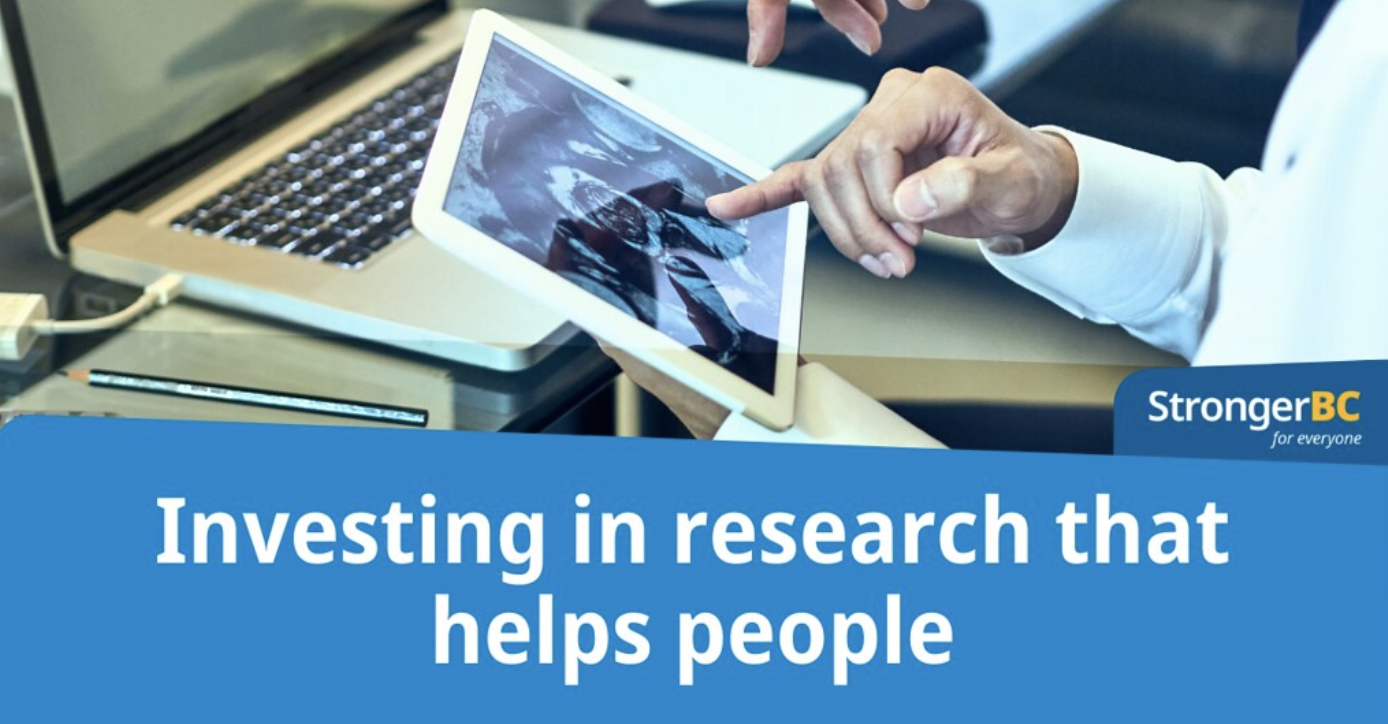Insider Brief
- Building the necessary infrastructure for quantum computing is one of 18 new research projects funded by the B.C. Knowledge Development Fund (BCKDF).
- The fund will provide $800,000 to invest in the construction of a high-performance computing cluster to make a unique quantum-accelerated supercomputer.
- Since 2017, the BCKDF has awarded more than $200 million to 430 projects.
PRESS RELEASE — Building the necessary infrastructure for quantum computing is one of 18 new research projects funded by the B.C. Knowledge Development Fund (BCKDF) to improve the lives of British Columbians.
“Bettering the lives of people through research and innovation is an important part of our StrongerBC Economic Plan and a personal passion of mine,” said Brenda Bailey, Minister of Jobs, Economic Development and Innovation. “The BCKDF gives students and researchers access to state-of-the-art equipment to develop technologies and innovate in areas like cancer treatments and the fight against climate change, helping improve the way we deliver the services that people rely on.”
Through the BCKDF, the Government of B.C. is providing more than $4.3 million for projects at UBC’s Vancouver and Okanagan campuses, the University of Victoria (UVic), Simon Fraser University (SFU) and Vancouver Island University (VIU) in fields such as health, natural resources and technology.

Quantum Accelerated Supercomputer
The BCKDF is providing $800,000 to invest in the construction of a high-performance computing cluster to design the next generation of quantum algorithms and devices, expand a semiconductor-based quantum processor prototype being developed at the University of British Columbia (UBC), and integrate these technologies to make a unique quantum-accelerated supercomputer.
This system will cement B.C. and Canada’s role as a world-leader for quantum computing research, and foster training of highly qualified personnel for a future quantum workforce.
Another UBC project has the potential to decentralize patient care and work toward developing personalized screening to provide affordable, remote, early-stage risk assessment of non-communicable diseases.
This round of funding also supports a UVic project that aims to find new ways to reduce traffic-related air pollution, as well as a project at SFU that uses new virtual reality (VR) and augmented reality (AR) technology to improve service delivery for British Columbians in under-served areas by reducing the need for travel, which then limits greenhouse gas emissions.
“This funding is crucial in the modernization of our universities’ research infrastructure capacity and capabilities, and in advancing the research needed in our province,” said Selina Robinson, Minister of Post-Secondary Education and Future Skills. “Supported research projects will make a difference in people’s lives and will help British Columbia become future ready.”
The BCKDF helps grow the economy by improving B.C.’s productivity and competitiveness, which is a key objective of B.C.’s Economic Plan. Other benefits include potential commercialization, spinoffs and patents, improved environmental management, and discoveries that directly affect the health and well-being of British Columbians.
Deborah Buszard, interim president and vice-chancellor, UBC, said: “UBC’s campuses in Vancouver and the Okanagan are home to some of the world’s leading researchers. Their work expanding knowledge, developing new technologies, formulating solutions to pressing challenges, and training the next generations of talented young people is helping drive innovation across B.C.’s economy. These investments from the B.C. Knowledge Development Fund will allow UBC researchers to access the infrastructure they need to advance British Columbians’ quality of life by furthering new treatments for disease and approaches to public health, developing knowledge that will improve food security and better prepare B.C. for the effects of climate change and natural disasters, and extending discovery and innovation in cutting-edge technology fields, such as quantum computing.”
Lisa Kalynchuk, vice-president research and innovation, UVic, added “These matching BCKDF funds will help University of Victoria researchers explore life-changing science and technologies to improve the health and well-being of people and our planet. From remote sensing of vehicle emissions to mitigating viral-bacterial co-infections and developing assistive technologies for osteoarthritis management, this research will help reduce the burden of air pollution on our health and improve the lives of people impacted by respiratory infections and chronic disease.”
Quick Facts:
- Since 2017, the BCKDF has awarded more than $200 million to 430 projects.
- Since the creation of the BCKDF in 1998, the Province has invested more than $862 million in more than 1,600 research projects.
- BCKDF funding spans sectors, such as health and life sciences, nuclear physics, medicine, genomics, biotechnologies, clean tech, agrifoods, energy and mines, environment and climate change, and forestry.
- The BCKDF shares project funding with other funding partners, including the Canada Foundation for Innovation.
If you found this article to be informative, you can explore more current quantum news here, exclusives, interviews, and podcasts.















